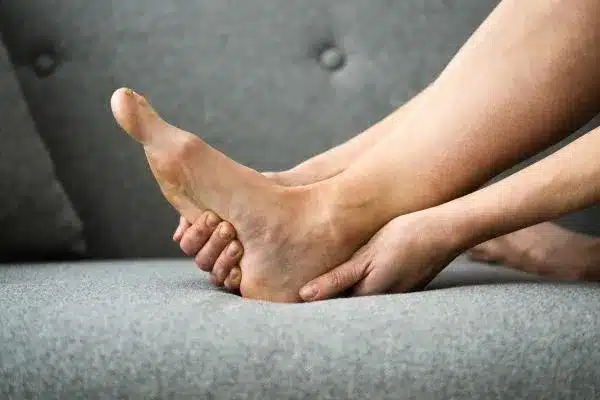Heel pain is a common discomfort many women experience during pregnancy, often caused by hormonal changes and increased weight gain. These factors can put extra stress on the feet, leading to pain and discomfort that can affect daily activities. Understanding the underlying causes and learning how to manage heel pain can greatly enhance your pregnancy experience.
In this comprehensive guide, we will explore the reasons behind heel pain during pregnancy, discuss the symptoms to watch for, and provide practical tips for effective management. Whether you’re navigating pregnancy discomfort yourself or caring for someone who is, knowing how to address heel pain can significantly improve overall well-being.
Causes of Heel Pain During Pregnancy
Heel pain during pregnancy can be attributed to several factors, primarily linked to the changes your body undergoes. Here are the key contributors:
- Hormonal Changes: During pregnancy, the body produces increased levels of the hormone relaxing, which helps to loosen ligaments in preparation for childbirth. While this is essential for delivery, it can also lead to instability in the feet and contribute to heel pain.
- Weight Gain: As the pregnancy progresses, weight gain is natural and necessary for the development of the baby. However, this additional weight can place extra pressure on the feet, particularly the heels, leading to discomfort and pain.
- Postural Changes: The growing belly alters your centre of gravity, which can affect your posture. Poor posture may result in additional strain on the feet and heels, causing discomfort.
- Foot Structure Changes: Pregnancy can lead to changes in the structure of the foot, such as flattening of the arches. This can increase the likelihood of developing conditions like plantar fasciitis, a common cause of heel pain.
Symptoms of Heel Pain During Pregnancy
Recognising the symptoms of heel pain can help you take prompt action to address the discomfort. Common signs include:
- Sharp or Stabbing Pain: Many women experience a sharp, stabbing sensation in the heel, especially during the first steps in the morning or after sitting for extended periods.
- Throbbing or Aches: Some may feel a constant aching sensation in the heel that worsens with prolonged standing or walking.
- Swelling: Inflammation around the heel area may accompany the pain, leading to noticeable swelling and tenderness.
Managing Heel Pain During Pregnancy
To effectively manage heel pain during pregnancy, consider implementing the following strategies:
- Wear Supportive Footwear: Choose shoes that provide ample arch support and cushioning. Avoid high heels and flip-flops, as they can exacerbate heel pain. Look for shoes designed for comfort, with features like shock-absorbing soles.
- Use Custom Orthotics: If you’re experiencing persistent heel pain, consult a podiatrist about custom orthotics. These inserts can provide personalised support to help alleviate pressure on the heels and improve foot alignment.
- Practice Gentle Stretching: Incorporate stretching exercises for your feet and calves into your daily routine. Simple stretches can help relieve tension in the plantar fascia and Achilles tendon, reducing heel discomfort.
- Apply Ice Therapy: If you experience swelling or acute pain, applying ice to the affected area for 15-20 minutes can help reduce inflammation and provide relief.
- Maintain a Healthy Weight: While gaining weight is important during pregnancy, try to maintain a healthy and balanced diet. Consult your healthcare provider for guidance on appropriate weight gain.
- Rest and Elevate: Take breaks throughout the day to rest your feet. Elevating your feet can help reduce swelling and alleviate discomfort.
- Consider Physical Therapy: If heel pain becomes persistent, a physical therapist can develop a personalised exercise program to strengthen foot muscles and improve flexibility.
When to Seek Professional Help
If heel pain persists despite self-care measures, or if you experience severe pain, swelling, or redness, it’s essential to consult a podiatrist or healthcare provider. They can evaluate your condition and recommend further treatment options, ensuring that you receive the care needed for your comfort and well-being during pregnancy.
Conclusion
Heel pain during pregnancy is a common concern that can stem from hormonal changes, weight gain, and altered foot structure. By understanding the causes and implementing effective management strategies, you can alleviate discomfort and enhance your overall pregnancy experience.
At Foot Focus, we specialise in foot health and are here to support you through this journey. If you or someone you know is struggling with heel pain during pregnancy, don’t hesitate to reach out for expert advice and personalised care. Early intervention can make a significant difference in your comfort and well-being.

